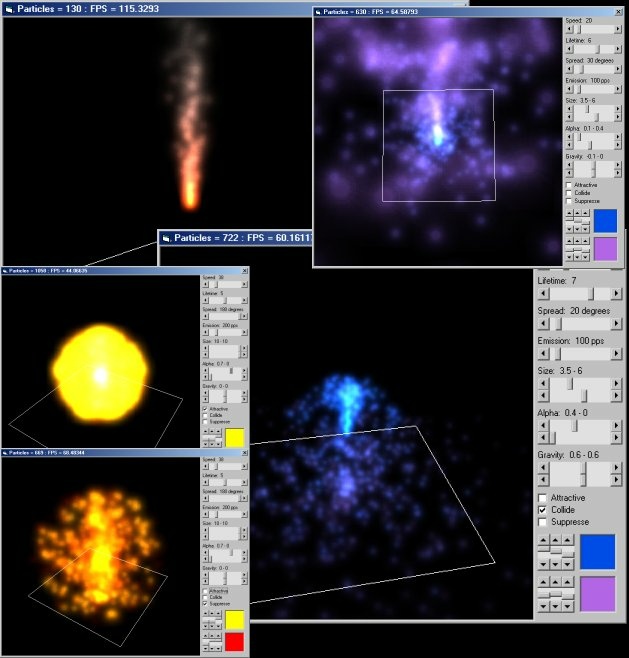 |

Submitted by , posted on 28 December 2001
|
 |

Image Description, by

These are a few pictures of the particle system that I've been writing over the
past few days.
The top left picture is the standard flame type particle effect that you see in
most pictures of particle systems.
The top right picture is of a cool nebula effect that I stumbled upon while
playing around with the settings.
Below that picture is nice little water fountain.
Finally the two pictures in the bottom left are of another nice effect that I
discovered.
The upper picture shows a funny little wobbling star and the lower image (after
a few changes to the settings) shows that same star exploding.
A lot of the main particle system code itself is based upon the source code to
Richard Benson's Particle Chamber (sorry, can't find his website) so a lot of
the credit should go to him. The main things I've changed is convert it to VB
and add support for DX8 point sprites.
Now you may be asking "Why VB?"
Well there's a simple answer to this. VB is a great platform for testing ideas
out and it's also the programming language I know most about. I'm still learning
to use DirectX and I'm not that familiar with C++ so why make it hard for myself
and try to learn two things at once?
Current speed of the particle engine (which you may be able to see in some of
the screenshots so I won't lie ;) is about 45fps with 1000 particles on a 1Ghz
Athlon with GeForce 2 GTS.
Comparing the speeds with Richard Benson's Particle Chamber they are only about
10% to 20% slower. (more than likely because of VB)
The code at the moment is totally un-optimised and a lot of it is basically a
hack so there's no public executable or source at the moment.
Once I've cleaned it up a bit I'll update my (VERY out of date) website at
http://www.mfoggin.btinternet.co.uk/.
Matt
|
|

